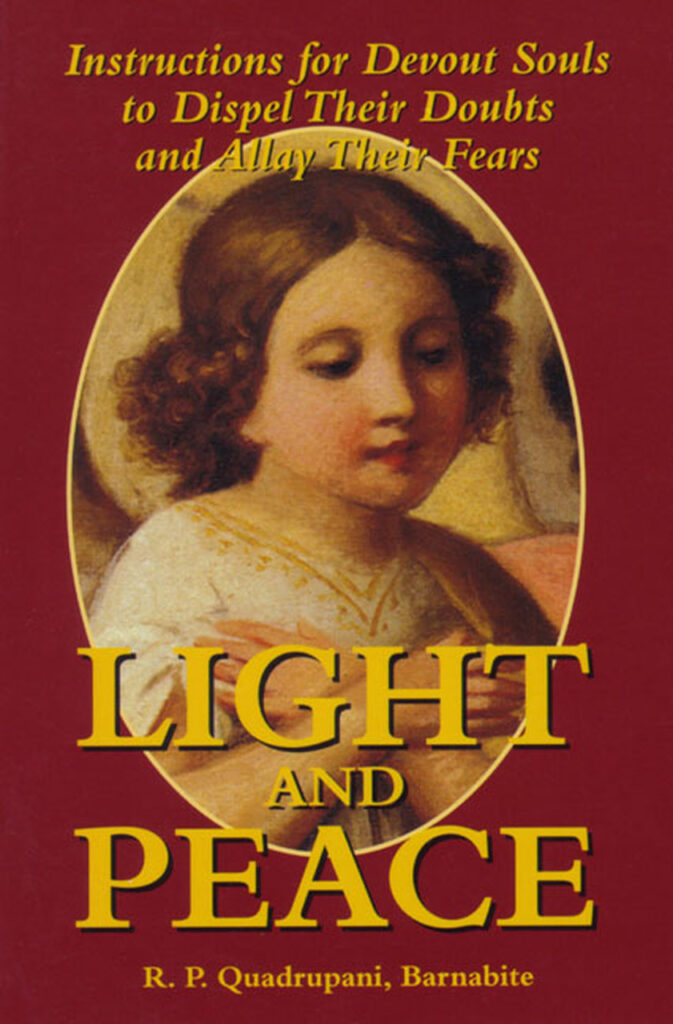“The sabbath was made for man, and not man for the sabbath.”
-Mark 2: 27
Every day of our life should be employed in glorifying God, but there are certain days He has particularly appointed whereon to receive from us a more special exterior worship. These are Sundays and holydays.
It is therefore obligatory upon us to sanctify such days. The ordinary means of fulfilling this duty are, principally, works of charity, the Holy Sacrifice of the Mass, the Sacraments, sermons, religious instructions, and spiritual reading.
Nevertheless, we should avoid over-fatiguing the mind and wearying the body by too many exercises of devotion. Excess even in holy things is wrong, as virtue ends where excess begins. All that was said on this subject in the chapter on Prayer is equally applicable here.
Moreover it is well to know that a friendly visit, a walk, a lawful diversion, all of which can be referred to God, serve also for the sanctification of Sundays and holydays, when undertaken with a view to please Him. The same may be said of such daily occupations as are required of man by his bodily needs.
“How often we are mistaken in our point of view! I tell you once again it is not the outward aspect of actions that we must look at, but their interior spirit, that is to say, whether or not they are according to the will of God. By no means regard the nature of the things you do, but rather the honor that accrues to them, worthless as they are in themselves, from the fact that God wishes them, that they are in the order of His providence and disposed by His infinite wisdom. In a word, if they are pleasing to God, and recognized as being so, to whom should they be displeasing?”—Saint Francis de Sales.
These things are said for the instruction of those who are eager and anxious on Sundays and holydays of obligation to heap devotion upon devotion and who make a crime of everything that is not an exterior act of piety. They apply themselves, it seems, to the material observance of the sabbath, following the superstitious custom of the Pharisees, instead of peacefully sanctifying the Lord’s day with that sweet and holy liberty of spirit which our divine Saviour teaches in the Gospel. Too much dissipation and over long prayers are two extremes each of which it is equally necessary to avoid.
Should it happen that you are obliged to travel on Sunday or to attend to some unforseen business, do not be disquieted about the impossibility of fulfilling your customary devout exercises. Replace these with pious aspirations, which, as I have already said, can in case of necessity supply for the omission of all other prayers.
Remark, in conclusion, that to assist at a Low Mass suffices strictly speaking for the sanctification of the Sunday or holyday. Even this may be omitted by those persons whom duty obliges to attend the sick, to mind the house, or to take care of young children; for these being works of justice and charity and good in themselves, may, when performed with a pure intention and accompanied by spontaneous aspirations, can equal and even surpass in value all exterior practices of devotion.
I do not speak at all of the sick, for by their sufferings they can sanctify every day and make each one equal to the greatest festival.
“Worldly notions are forever blending with our thoughts and throwing them out of perspective. In the house of an earthly prince it is not so honorable to be a scullion in the kitchen as to be a gentleman-in-waiting. But it is different in the house of God, where those in the humblest positions are oft-times the most worthy; for although they labor and drudge it is done for the love of God and in fulfilment of His divine will; and the true value of our actions is fixed by this divine will and not by their exterior character. Therefore he who truly loves God’s will in the accomplishment of his duties, does not allow his affections to become engaged in any of his spiritual exercises; and so, if sickness or accident interfere with them he experiences no regret. I do not say indeed that he does not love his devotions, but that he is not attached to them.”—Saint Francis de Sales.
“If you have a sincere regard for the virtues of obedience and submission, I wish that, should justice or charity demand it, you would forego your pious exercises, which would be a sort of obedience, and that this omission should be supplied by love. I told you on another occasion: the less we live according to our own liking, and the less option we have in our actions, the more goodness and solidity will there be in our devotion. It is right and proper sometimes to leave our Lord in order to oblige others for love of Him.”—Saint Francis de Sales.
This article is taken from a chapter in Light and Peace by R. P. Quadrupani, Barnabite which is available from TAN Books.









